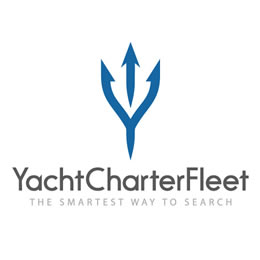What are the rules for chartering a yacht in the USA?


The USA boasts some of the most diverse cruising grounds in the world, attracting superyachts from far and wide to its glittering shores. If you are keen to discover more about what this amazing country can offer for a yacht charter, there are some important factors to bear in mind first.
There are certain legal fundamentals of chartering a yacht in US waters which you may not be aware of. So, before you go ahead and book your superyacht rental in the United States, here’s what you need to know.
Without getting too bogged down in the legal minutae, simply put, yacht brokers operate two main types of charter agreements in the US; time/voyage (aka crewed or commercial) charter agreements and bareboat/demise charter agreements.
This type of charter agreement is operated for a specific time or voyage. In general, the following applies;
To legally operate crewed charters in US waters, the yacht must be;
To be eligible for a Coastwise endorsement, the yacht must either have been:
To be eligible for this waiver, a yacht must be more than 3 years old and owned by a US citizen or US entity (dependant on how it is structured)
The obvious benefit to crewed charters is that the owner is wholly responsible for the yacht throughout the duration of the charter.
These types of charters are similar to those you would undertake, say in the Mediterranean or Caribbean, in that you are renting a yacht with crew for a specific voyage or length of time.
All yachts that do not qualify under the commercial charter rules and wish to cruise in US waters are considered bareboat (aka demise) charters.
This type of charter operates as follows;
In essence, a bareboat charter agreement’s main characteristic is that it places possession of the vessel in the hands of the charter party at the time the charter starts. In legal terms, this means the owner relinquishes “possession, command and navigation of the vessel” as to be “tantamount to, although just short of, an outright transfer of ownership.”
The owner must also have no involvement in the crew selection, nor any ties to any company selecting the crew, which could be construed as enacting a measure of control over the yacht and thus contravene the rules of this type of charter.
The charterer in effect assumes all responsibility for the vessel and its activities – including an obligation to maintain or repair the yacht and return it in the same condition as it was at the beginning of their charter period.
They are also responsible for crew selection and their remuneration for the duration of the charter.
Tax may also be due depending on the type of charter. For example, a yacht undertaking a crewed charter originating in Palm Beach, Florida will have no additional tax to pay. However, for a bareboat charter, tax will be liable at 7% of the value of the charter.
There may be other potential duties payable, which can vary from state to state.
Overall, there are distinct benefits for chartering a US-flagged, or eligible, vessel. However, charterers with their heart set on a foreign-flagged yacht can still enjoy cruising the various destinations in the US, they simply need to understand the laws and what's at stake beforehand.
Planning ahead is key. This is where a good charter broker comes in, especially one with in-depth knowledge of the legal aspects of chartering foreign-flagged yachts in US waters.
If you need any further advice regarding booking a superyacht rental in US waters, then please reach out to a recommended yacht charter broker who will be more than happy to help.
To compare the complete market, take a look at all luxury yachts available for charter in the USA.
Book with Ease - Speak with a Charter Expert
Our yacht charter experts will:
Yacht Reviews
This is a small selection of the global luxury yacht charter fleet, with 4199 motor yachts, sail yachts, explorer yachts and catamarans to choose from including superyachts and megayachts, the world is your oyster. Why search for your ideal yacht charter vacation anywhere else?
All Yachts for CharterAs Featured In
Yachts in your shortlist